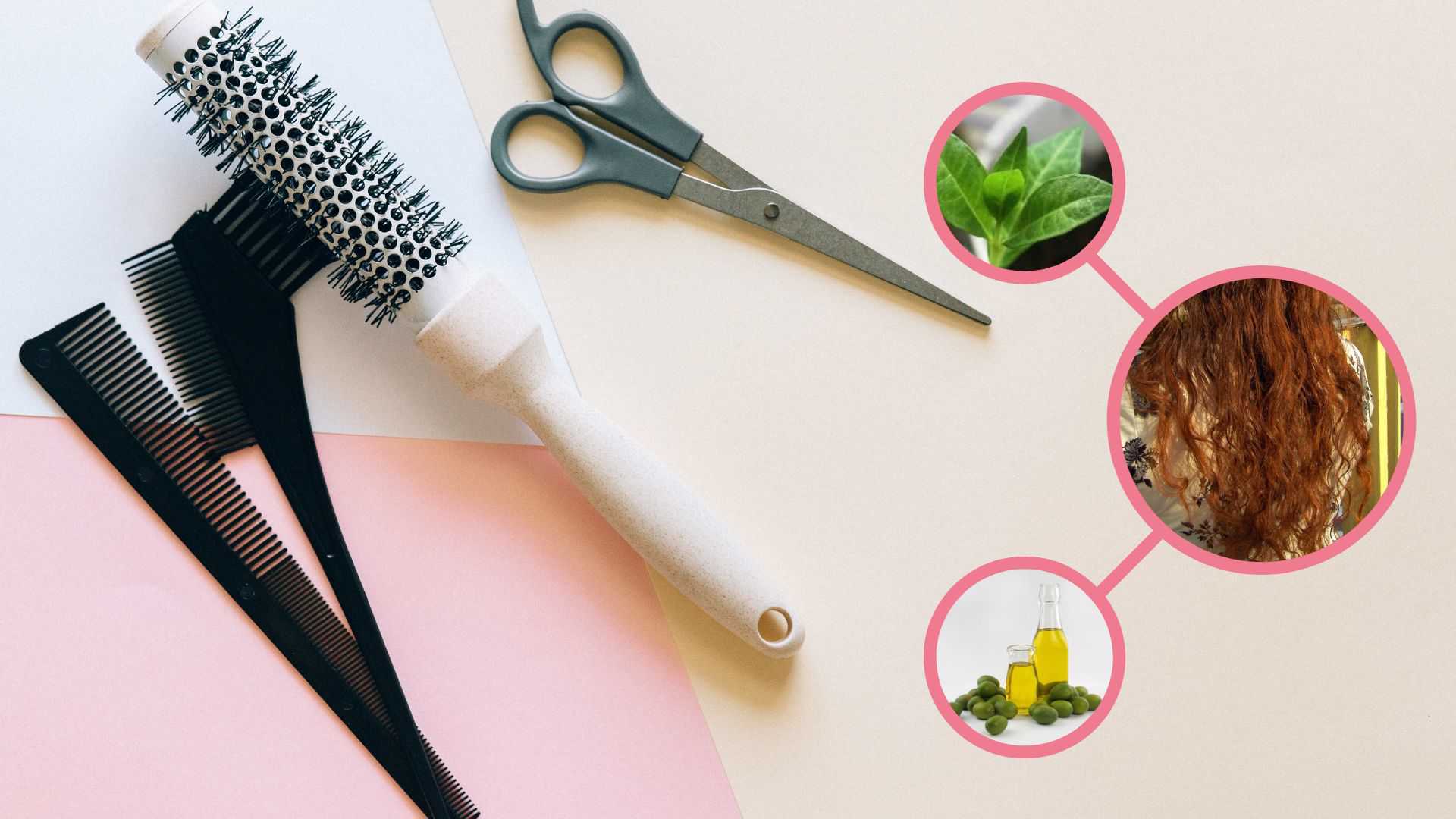Hair care in Islam is one of the aspects of an Islamic lifestyle. The Sunnah of Allah’s Messenger (sallallahu alayhi wasallam) emphasizes the importance of maintaining the health and condition of one’s hair. The Prophet of Allah (sallallahu alayhi wasallam) is reported to have stated, “Whoever possesses hair, let him look after it appropriately,” in Sahih al Bukhari. Let’s learn more about Hair care in Islam in this article.
How to take care of hair in Islam
Wash your hair often:
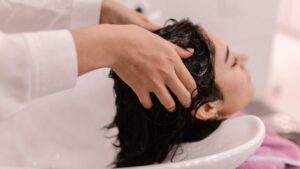
Al Bukhari reports that the Prophet of Allah (sallallahu alayhi wasallam) used to wet his head three times with water before gently but completely rubbing his hair to wet the roots and the entire scalp. Then, the Prophet of Allah (sallallahu alayhi wasallam) scented his head by rubbing it with any pleasant aroma that was at hand, first on the right side of his head, then the left, and finally the center. Even when he had completed taking a bath, that smell was still on him.
According to studies, shampooing your hair every two days is the ideal frequency. It is advised to use a moderately medicated shampoo and not to shampoo the hair multiple times during each washing unless it is extremely dirty as this could cause brittleness and broken ends. Additionally helpful, a final rinse with a hair conditioner enhances softness and aids.
Also Read: How to do Ghusl (ritual bath) in Islam
After finishing their menstrual cycle, women with very long hair that is always plaited need to undo the plaits and give their hair a thorough wash. It is not acceptable to simply make the hair wet or to only wet the tips.
When combing the hair, begin on the right side.
According to Our Mother A’isha (radhi Allahu anha), the Prophet (sallallahu alayhi wasallam) “used to like starting from the right in performing ablution, combing his hair and putting on his shoes.”
[Sahih al Bukhari Book 72, Number 745, Volume 7]
Combing wet hair with caution
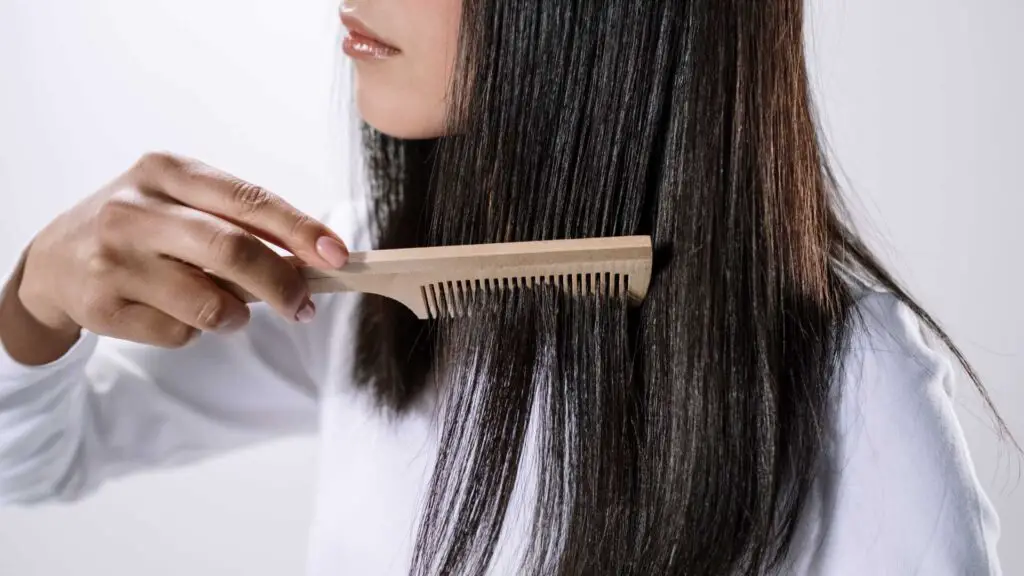
When using a fine-toothed comb on wet hair, extreme stress can be placed on the hair shaft, causing breaking and hair loss. If necessary, use a wide-toothed detangling comb and some olive oil. When brushing your hair, never pull on it.
Permit wet hair to naturally dry:
By robbing the hair of its natural moisture when using heated blow dryers, split ends, wiriness, and breakage can result. Additionally, the hair is more likely to become dry, frizzy, and challenging to style.
Apply hair oil to the scalp regularly:
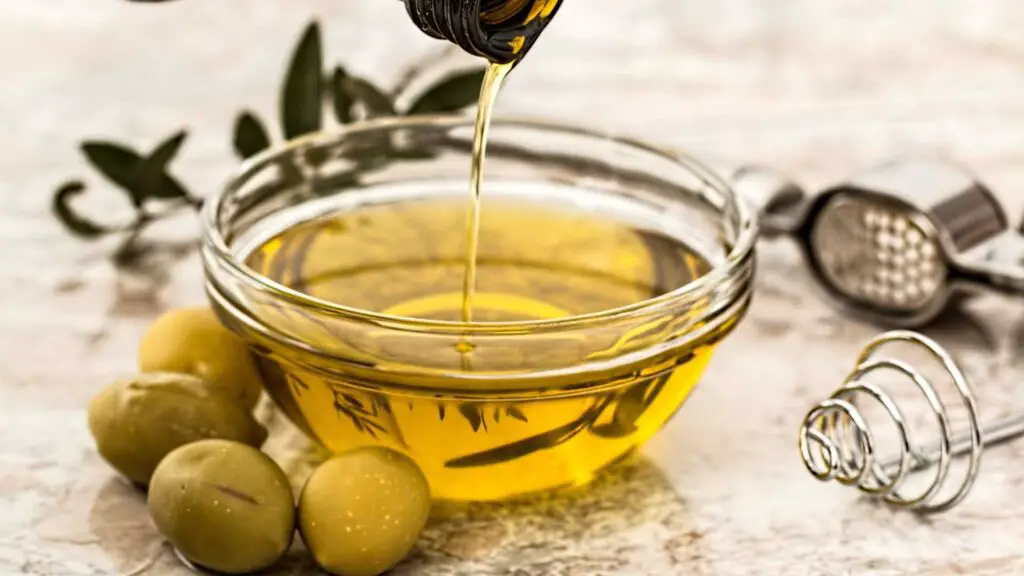
The Sunnah specifically mentions using hair oil;
Additionally, Our Mother A’isha (radhi Allahu anha) related that “The Prophet (sallallahu alayhi wasallam) used to (put) bend his head (out) to me while he was in Itikaf in the Mosque during my monthly periods and I would comb and oil his hair.”
[Sahih al Bukhari Volume 3, Book 33, Number 245]It is advised to gently massage the scalp with any of the following oils on a weekly or more frequent basis. This will increase blood flow to the scalp, strengthen the hair roots, and condition the hair shaft. Olive oil is the ideal kind of oil to utilize;
Also Read: Health Benefits of Olive Oil in Islam
The Prophet of Allah (sallallahu alayhi wasallam) is reported to have said, “Season (your food) with olive oil and anoint yourselves with it, for it comes from a blessed tree,” according to ‘Umar (radhi Allahu anhu)
(Hadith 3444 in Sunan Ibn Majah Book 29. Darusalaam categorized it as Sahih.)
The hair oil may be applied to the hair for 2 to 4 hours.
Apply Henna:
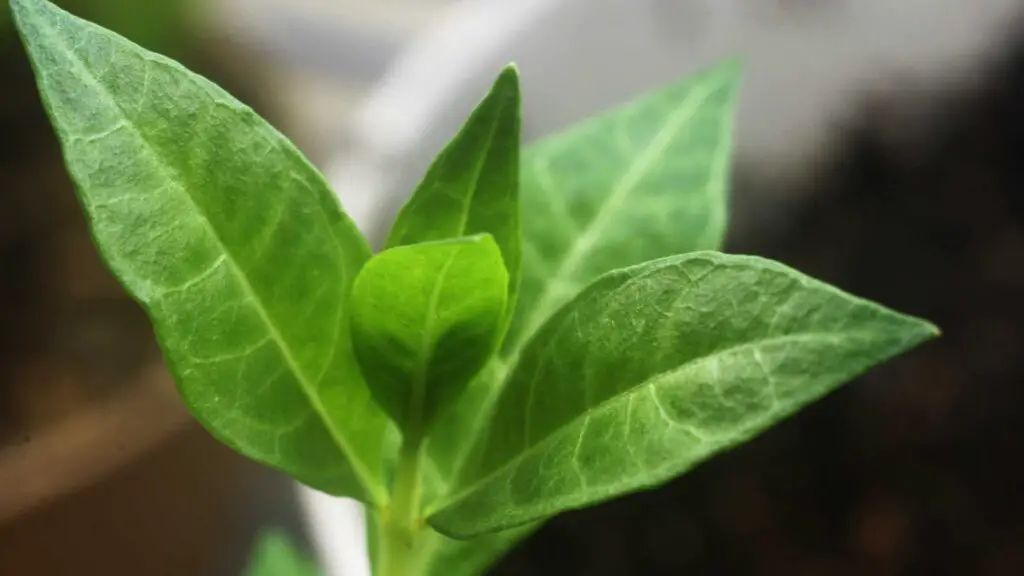
Chemically based hair dyes and enhancements injure the hair significantly and enter the bloodstream through the pores in the scalp. Instead in Hair care in Islam, the dried and crushed leaves of the henna plant are used to make henna, a natural dark red dye. Even pregnant ladies can safely use 100% pure henna. It possesses characteristics that strengthen hair and also calm down the scalp, lessen headaches and migraines, slow down hair aging, soothe flakiness/itchiness, get rid of dandruff, and kill lice. The Companions of our beloved Prophet (sallallahu alayhi wasallam) used henna, most notably Abu Bakr As Siddique (radhi Allahu anhu), who decorated his blessed hair and beard with it.
Henna should be combined with an acidic liquid, such as lemon juice until a thick paste develops. To make the consistency easier to apply, more lemon juice should be added after this has been covered and let sit for 24 hours. Henna can be applied to the hair and kept in for two to eight hours.
Pure henna always leaves a vivid red or orange stain. It is never advisable to use the so-called “Black Henna” or “Brown Henna” because they almost probably contain hazardous compounds that could lead to a severe allergic reaction.
Sleeping Correctly:

Stress, which has been connected to hair loss, is relieved by getting good sleep. So good sleep equals healthy hair. Nevertheless, it’s crucial to remember that getting too much sleep is not advised and has no positive effects on the body. Rasool’Allah (sallallahu alayhi wasallam) and the Companions had a custom of sleeping for a section of the night and waking up for Qiyyam ul Layl in the final third of the night.
Also Read: Why Sleeping on Stomach in Islam is Forbidden
Amending Dietary Plan

The age-old cliche that “eating healthily will improve your hair’s condition” is actually true. Strong, lustrous, and bouncy hair is encouraged by eating a balanced diet that is low in saturated fat and abundant in protein, veggies, fresh fish, vitamins, and minerals. By avoiding anything that causes crash diets, hormonal imbalances, poor blood circulation, and anemia, hair loss can be reduced. Regular consumption of almonds, sesame seeds, and dried fruit all improve the health of the scalp and hair.
Hadiths on Hair Care in Islam
Many Muslims are unsure about how to properly take care of their hair in order to preserve a suitable exterior appearance that reflects their inner cleanliness and religion. The Prophet Muhammad and his Companions set the best examples for how to take care of hair and provided us with some guidance on the subject.
The Prophet ﷺ said,
Whoever has hair, let him take care of it. (Abû Dâwûd)
Hair should be kept tidy, clean, and well-groomed. Aa’ ibn Yasr uttered,
Once a man came before the Prophet ﷺ with his hair and beard unkempt. The Prophet made some gestures as though ordering the man to comb his hair. He did so, and upon his return, the Prophet remarked, ‘Is this not better than one of you coming with disheveled hair, looking like a devil?’ (Mâlik in Al-Muwaṭṭa)
Before their spouses enter the house, women should be aware of how they have styled their hair.
Once, the Prophet and a few of his Companions went on an expedition. When they arrived back in Madinah and were about to return to their homes, the Prophet stated,
Wait so that we may enter by the night so that the woman with disheveled hair may comb it and the woman whose husband has been away may get herself clean.
The Prophet used to give his hair a lot of attention himself. As stated by Aisha (R.A.),
The Messenger of Allah ﷺ loved to start from the right-hand side for performing ablution, for combing (the hair) and putting on shoes. (Muslim)
Qatâdah reported,
I asked Anas ibn Mâlik, ‘How was the hair of Allah’s Messenger, ﷺ?’ He said, ‘His hair was neither very curly nor very straight, and [it] hung over his shoulders and earlobes.’ (Muslim)
Abû Hurairah reported the Prophet (SAW) saying that,
Whoever has hair should honor it. (Abû Dâwûd)
Some Companions would oil their hair to “respect” it. Additionally, it was common, though not required, to color it with henna, katm (a Yemeni herb), or saffron.
A question regarding the coloring of Allah’s Messenger’s white hair was posed to Anas ibn Mâlik. He then stated,
“(There were so few white hairs) that if I so liked I could have counted their number in his head,” and Anas further said, “(That is), he did not dye it. Abû Bakr, however, dyed his hair, and so did ʿUmar dye his with pure henna.” (Muslim)
However, women who are grieving the loss of their spouses shouldn’t apply henna while they are in this state. (Fiqh Al-Sunnah)
Another way to honor one’s hair is to make sure it is styled in a way that is proper for one’s gender and not in imitation of non-Muslims. Women are not allowed to shave their hair, but men are allowed to do so as long as they shave all of it.
According to Ibn Umar, the Prophet reportedly remarked (with regard to men),
Shave it all or leave it all. (Ahmed and Muslim)
As long as they adhere to the aforementioned rules, both sexes are permitted to cut hair. In order to avoid feeling dissatisfied by a new hairstyle that they may find unappealing, women should consult their husbands before drastically shortening their hair in order to more closely resemble men. The wearing or making of wigs is forbidden in Islam, hence a woman must refuse her husband’s request if he asks her to add fake hair to her head for whatever reason.
A woman came to Allah’s Messenger and said, “I have married my daughter whose hair has fallen out,” according to Asma, the daughter of Abû Bakr. Her husband likes her long hair. O Prophet of Allah! Can I give her head some fake hair?” He warned her against doing it. In other narrations, Aisha’, her sister Asma, ‘Ibn Mas’ûd, and ‘Abû Hurairah all claim that ‘The Messenger of Allah cursed al-wa’ila and al-mustawa’ila, referring to both the wig-maker and the wig-wearer, and ‘The Messenger of Allah called the use of fake hair a “forgery”. (Muslim and Bukharian)
When performing ghusl (full body ablution), women who have braided their hair are permitted to retain the braids in place as long as the water they apply to their heads reaches the hair roots. According to Ubaid ibn Umair, Aisha (R.A.) found out that Abdullah ibn Amr was telling the women to undo their plaited hair (for ghusl). She observed, “It is amazing that Ibn ʿAmr orders women to undo their plaited hair for ghusl. Why doesn’t he just order them to shave their heads? I and the Messenger of Allah ﷺ used to bathe from one vessel, and all I did was pour three handfuls of water over my head.” (Ahmed and Muslim)
Hair Care in Islam through Hijab for Muslim Women
When outdoors, around non-Mahram men, or around other women who might make comments about their appearance to strangers, Muslim women should be careful to totally cover their hair. Some women who wear head coverings notice hair loss after converting to hijab and believe hijab is to blame for this challenging situation.
Fortunately, it’s doubtful that wearing a hijab will result in any woman losing their hair. Since the hair is never exposed to the elements—sun, wind, air, rain, smog, and other types of pollution—the hijab really offers excellent hair protection. Additionally, hijabi women are significantly less likely to overuse hairspray or frequently curl their hair, both of which can harm hair.
Since there are several health issues that can cause hair loss in women, it is most likely a coincidence if you start losing your hair after you start wearing a hijab. For instance, it is typical to experience significant hair loss following childbirth, particularly if you are breastfeeding. This often starts about 4-6 months after a kid is born and quickly grows back.
Hair loss and thinning may also be caused by conditions including thyroid problems and iron deficiency anemia, as well as by some drugs and even stress. Numerous factors determine whether hair loss is temporary or permanent, and it is advisable to address these with a licensed doctor.
In particular, older women should be aware that hair loss is a normal part of growing older.
Avoid tight braiding your hair to lessen stress on the hair and scalp. After shampooing, let your hair air dry, and avoid brushing it while it’s still damp. Avoid using hot curlers and harsh dyes, perms, and styling agents. Additionally, refrain from wearing your hair wet when wearing a hijab on a regular basis.
How to take care of white hair in Islam
Grey or white hair is a blessing for a Muslim and a sign of maturity and experience.
Amr ibn Shuʿaib related that the Prophet, ﷺ said,
Do not pluck gray hairs as they are a Muslim’s light. Never does a Muslim grow gray hair in Islam except that Allah writes for him, due to that, a good deed, and He raises him a degree. And He erases for him, due to that, one of his sins. (Abû Dâwûd and Ahmed)
These were some of the tips for hair care in Islam. We hope you learned How to take care of hair in Islam. Read more Islamic Blogs or follow us on social media for Islamic reminders.


